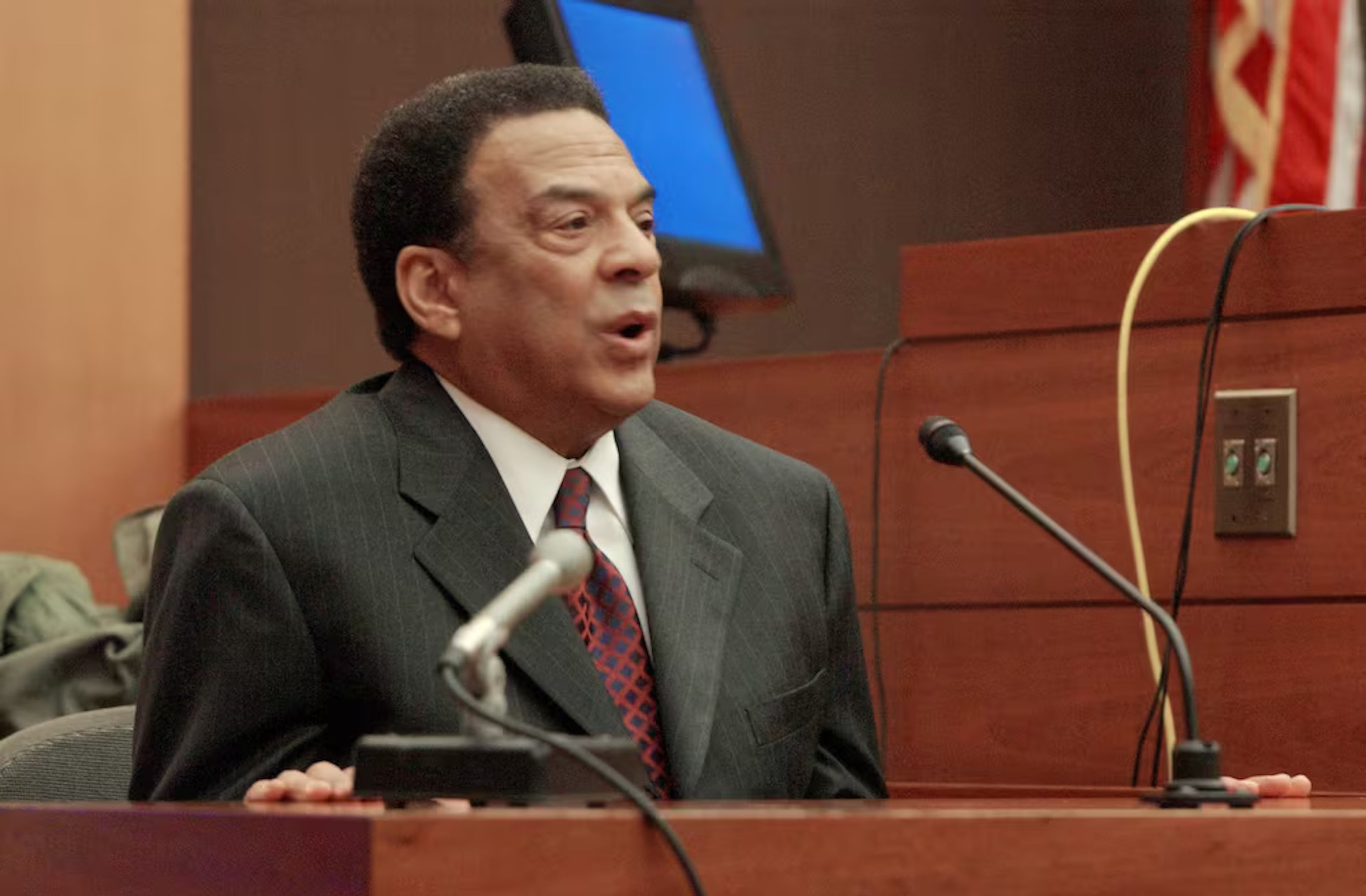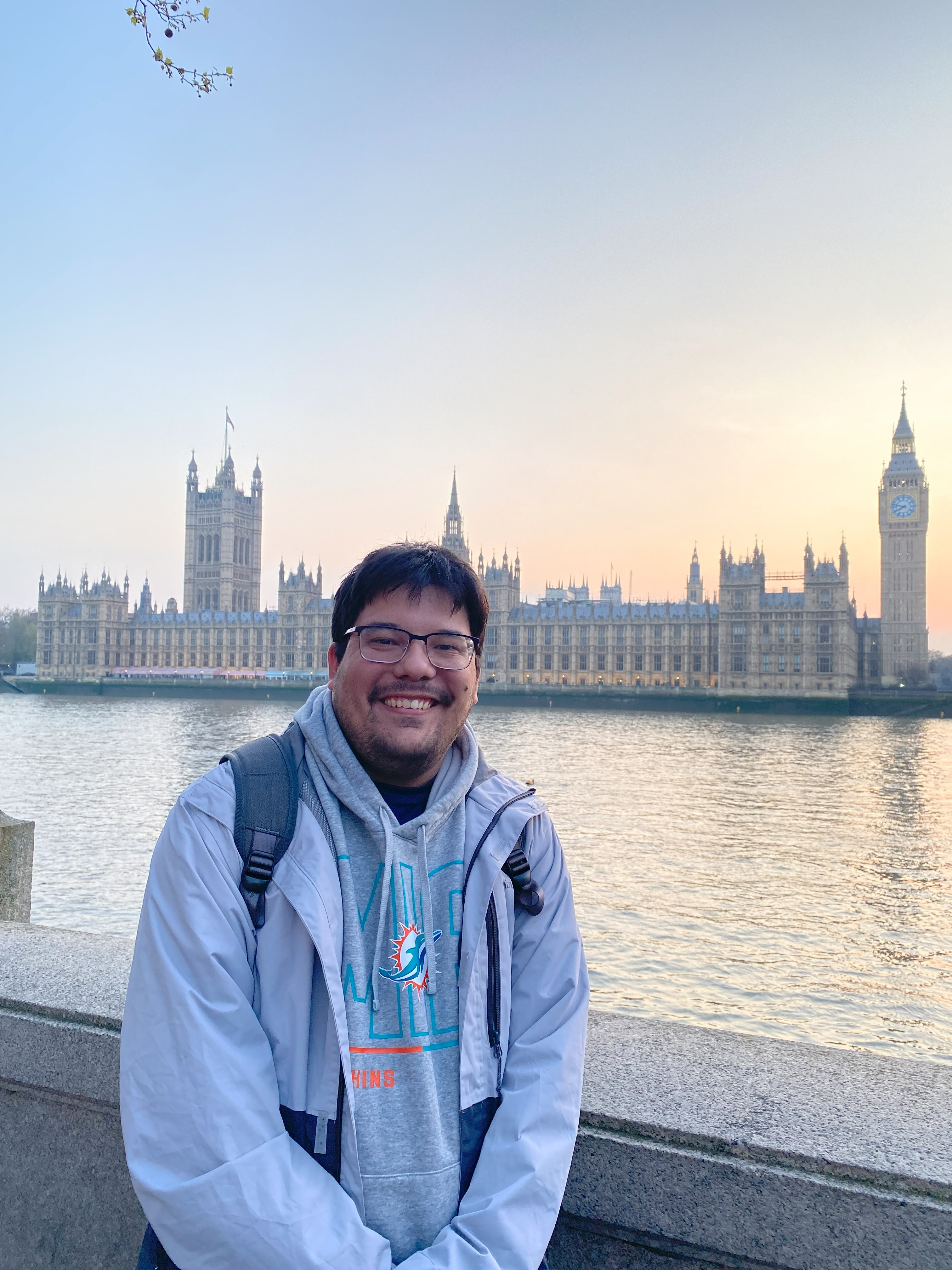Civil rights activist, convicted in killing of Fulton deputy, dies in federal prison

A civil rights advocate and former Black Panther who converted to Islam and then fostered a burgeoning Muslim community in Atlanta’s West End died Sunday in prison fighting his 2002 conviction in the killing of a Fulton County deputy.
Jamil Al-Amin, formerly known as H. Rap Brown, was 82 years old and had experienced “a prolonged period of severe medical decline” in federal custody, his attorneys said.
Al-Amin was convicted of shooting two officers, killing one, as they tried to serve a warrant for a stolen vehicle on March 16, 2000. He maintained his innocence and was still seeking to overturn the conviction — his motion for a new trial was still pending at the time of his death.
That incident, together with a quote he’d said in 1967—“Violence is as American as cherry pie”—came to haunt the legacy of the man, but people who knew him described someone different.
Former Atlanta Mayor and U.N. Ambassador Andrew Young told The Atlanta Journal-Constitution that the “cherry pie” quote, and not any actions, was the only thing that made Al-Amin militant.
“I think of that was one of the true tragedies of the movement,” Young said. “That was what people branded him as, as though he was calling for violence, which he was not.”
Young said he didn’t know what happened in the shooting of the two officers, and that the incident had in itself been a tragedy.
“He never could break out of the labels of his youth,” Young said of Al-Amin. “But his lifestyle, from everything I knew in the community, was totally nonviolent. Really pacifist.”

To the world, Al-Amin had been H. Rap, fighting for voting rights for Black people and speaking truth to power so loudly that the FBI investigated him for decades before turning over their files to a U.S. attorney who declined to file any charges.
To Atlanta, he was a community leader who started small businesses and helped build up a community where people felt safe.
Young said his daughter rented an apartment in West End during Al-Amin’s tenure there as an imam and business owner. During a visit to the neighborhood, neighbors reassured him it was a safe place for his youngest child.
Akinyele Umoja, professor of Africana Studies at Georgia State University, said H. Rap Brown had been one of his heroes growing up, but that he later came to know Al-Amin personally.
Umoja said he’d interviewed Al-Amin in jail several times after the shooting and believed in his innocence.
“He seemed to be a pretty stable, calm, wise person. I didn’t see him as somebody who would be involved in shooting police officers in the manner that was described,” Umoja said.
Al-Amin converted to Islam in the 1970s while in prison after getting wounded in a 1971 shootout with police in New York. He moved to Atlanta in 1976 and made the West End his home.
He owned a small grocery store, The Community Store, on Oak Street, became an imam and fostered a growing Muslim community there.
In a March 2000 article, community members told the AJC that Al-Amin worked hard at trying to clean up drugs and prostitution from the neighborhood. He was described as a “pillar of the Muslim community and a pillar of the African American community.”
In 1995, Al-Amin told the AJC that Muslims were “pushing back the other lifestyles” in the neighborhood and, at night, “we do have brothers walking the neighborhood for security,” he said.
However, police didn’t see it that way, suspecting Al-Amin used intimidation to control the neighborhood.
In the 1990s, police and the FBI investigated him in connection with a number of crimes from gun-running to domestic terrorism and 14 homicides in the West End, but he was never charged or convicted, according to police records obtained by the AJC.
The FBI investigated him until February 1996, while Atlanta police continued its investigation until August 1997. After the FBI turned over its findings to the U.S. attorney’s office in Atlanta, prosecutors declined to file charges.

Al-Amin was convicted of wounding Deputy Aldranon English and killing Deputy Ricky Kinchen in March 2000 as the officers were trying to serve a warrant in connection with a stolen car.
During his trial, defense attorneys tried to poke holes in the prosecutor’s case, arguing that both deputies had said they wounded Al-Amin, but when he was captured in Alabama days later, he had no injuries.
On the stand, English testified that Al-Amin was the shooter.
The jury took 10 hours to find him guilty on all counts.
“The defense case did not have any meat,” a juror told the AJC. “Unless you were very biased, you could never believe the conspiracy theory.”
Attorneys appointed by the court after the trial appealed Al-Amin’s conviction multiple times, but lost in the Georgia Supreme Court, federal court and federal appeals court.
They argued that then-Fulton prosecutor Robert McBurney performed a “mock cross-examination” of Al-Amin during closing arguments, asking questions like, “Why would the FBI care enough to frame you? How did the murder weapons end up in (Alabama)? How did your Mercedes get shot up? Why did you flee?”
McBurney, who is now a Fulton County Superior Court judge, said the jury listened to the evidence and decided to convict Al-Amin.
“After carefully considering the evidence, a thoughtful and diverse jury spoke for our community in finding Al-Amin guilty of murdering one deputy and grievously injuring another,” McBurney said in a statement to the AJC.
On appeal, the 11th Circuit Court of Appeals found that “the state’s questioning of the defendant in its closing argument violated his Fifth Amendment right not to testify, and that the violation was serious and repeated,” however, it did not grant Al-Amin a new trial or overturn his conviction.
For years, many prominent figures, including Young, argued Al-Amin shouldn’t be behind bars. During a speech in 2020, Young said the case “weighs heavy on my heart because I really think he was wrongfully convicted.”
Young testified on behalf of Al-Amin during a hearing to determine whether Al-Amin was going to be sentenced to death. He was sentenced to life in prison without the possibility of parole.

In May, his attorneys filed an extraordinary motion for a new trial saying that newly discovered evidence and constitutional violations merited a fresh look at his case.
“Our commitment remains to make a clear and undeniable record that he was denied a fair trial, suffered grave medical neglect, and was subjected to federal surveillance and suppression that threatens the freedom of us all,” attorney Mawuli Mel Davis said in a statement.
Attorney Maha A. Elkolalli said that they will continue to work to clear Al-Amin’s name.
“He suffered unjust harm and severe medical neglect in some of this country’s worst prisons. It is a travesty that he was not permitted to spend his final days with his family,” Elkolalli said in a statement.
In the wake of his death, the Council on American-Islamic Relations renewed its calls for the Fulton County District Attorney’s Conviction Integrity Unit to review the case and clear Al-Amin’s name. A DA spokesperson said it has an open review of the case.
While in custody in 2007, Al-Amin was moved from state prison to the federal Supermax prison in Colorado after Georgia officials said they feared his leadership skills would lead to him radicalizing his fellow prisoners.
Al-Amin was transferred to Butner Federal Medical Center in North Carolina in February 2025, because of severe medical neglect of lymphoma, which resulted in a diagnosis of terminal cancer, his attorneys said.
In a statement on Monday, his family thanked supporters who prayed and advocated to clear Al-Amin’s name. The family said it would share the time and location for his funeral in the coming days and welcomed the public to attend.
“Your belief in his innocence strengthened us,” his son, Kairi Al-Amin, said. “We ask for your continued prayers as we mourn a father, a husband, a brother, a leader, and a servant of the people.”
Al-Amin is survived by his wife of 53 years, Karima Al-Amin, and their two sons, Kairi and Ali Al-Amin.
But he’s also remembered as an important figure in the civil rights movement, a person who had the nerve to confront President Lyndon B. Johnson during a meeting in the White House over a failure to protect workers in Selma, Alabama.
“He was a spokesperson for our freedom,” Umoja said. “A person who always believed in resistance. A person who believed in spirituality and brotherhood in our community.”




